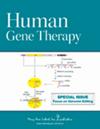重组腺相关病毒(rAAV)和野生型AAV (wtAAV)暴露于不同稀释剂和环境条件下的感染性评估。
Q1 Immunology and Microbiology
引用次数: 6
摘要
重组腺相关病毒(rAAV)是一种很有前途的基因传递载体,已被批准作为一些遗传疾病的基因治疗药物,并正在临床试验中进行评估。为了进一步推动fda新药研究申请下的临床研究,必须在各种条件下评估rAAV的稳定性。然而,关于各种rAAV血清型的稳定性的数据很少。我们假设衣壳结构的不同导致了稳定性的差异。为了验证这一假设,将rAAV血清型(rAAV1、rAAV2、rAAV8和rAAV9)暴露于稀释剂和各种环境条件下,包括紫外线(UV)照射、0.1M氢氧化钠(NaOH)、0.06%次氯酸钠(NaClO)、自来水和70%乙醇(EtOH)。通过在HeLaRC32细胞中的转导来评估处理样品的传染性变化,作为稳定性的标准。并分析了重组病毒与野生型AAV (wtAAV2)的感染性。紫外线照射、NaOH和NaClO暴露使所有rAAV血清型的活性减弱。用自来水或70% EtOH处理10天没有明显地灭活rAAV1、rAAV8和rAAV9,但确实影响了rAAV2的活性。此外,rAAV2的传染性没有超过wtAAV2的传染性。该结果对利用rAAV进行基因治疗的临床研究具有重要意义。本文章由计算机程序翻译,如有差异,请以英文原文为准。
Infectivity assessment of recombinant adeno-associated virus (rAAV) and wild-type AAV (wtAAV) exposed to various diluents and environmental conditions.
Recombinant adeno-associated virus (rAAV) is a promising gene delivery vehicle that has been approved as a gene therapy drug for some genetic disorders, and is being evaluated in clinical trials. To further promote clinical research under the Food and Drug Administration Investigational New Drug application, the stability of rAAV must be assessed under various conditions. However, there is scant data concerning the stability of a variety of rAAV serotypes. We hypothesized that the difference of capsid structure causes differences in stability. To investigate this hypothesis, rAAV serotypes (rAAV1, rAAV2, rAAV8, and rAAV9) were exposed to diluents and various environmental conditions, including ultraviolet (UV) irradiation, 0.1M sodium hydroxide (NaOH), 0.06% sodium hypochlorite (NaClO), tap water, and 70% ethanol (EtOH). The changes of the infectivity of the treated samples were assessed by transduction in HeLaRC32 cells as a criterion of stability. The infectivity between recombinant and wild-type AAV (wtAAV2) was also analyzed. The activity of all rAAV serotypes was weakened by UV irradiation and NaOH and NaClO exposure. Treatment for 10 days with tap water or 70% EtOH did not appreciably inactivate rAAV1, rAAV8, and rAAV9, but did affect the activity of rAAV2. Furthermore, the infectivity of rAAV2 did not surpass wtAAV2 infectivity. The results will be important for clinical studies for gene therapy using rAAV.
求助全文
通过发布文献求助,成功后即可免费获取论文全文。
去求助
来源期刊

Human Gene Therapy Methods
BIOTECHNOLOGY & APPLIED MICROBIOLOGY-GENETICS & HEREDITY
CiteScore
5.80
自引率
0.00%
发文量
0
审稿时长
>12 weeks
期刊介绍:
Human Gene Therapy is the premier, multidisciplinary journal covering all aspects of gene therapy. The Journal publishes in-depth coverage of DNA, RNA, and cell therapies by delivering the latest breakthroughs in research and technologies. Human Gene Therapy provides a central forum for scientific and clinical information, including ethical, legal, regulatory, social, and commercial issues, which enables the advancement and progress of therapeutic procedures leading to improved patient outcomes, and ultimately, to curing diseases.
The Journal is divided into three parts. Human Gene Therapy, the flagship, is published 12 times per year. HGT Methods, a bimonthly journal, focuses on the applications of gene therapy to product testing and development. HGT Clinical Development, a quarterly journal, serves as a venue for publishing data relevant to the regulatory review and commercial development of cell and gene therapy products.
 求助内容:
求助内容: 应助结果提醒方式:
应助结果提醒方式:


